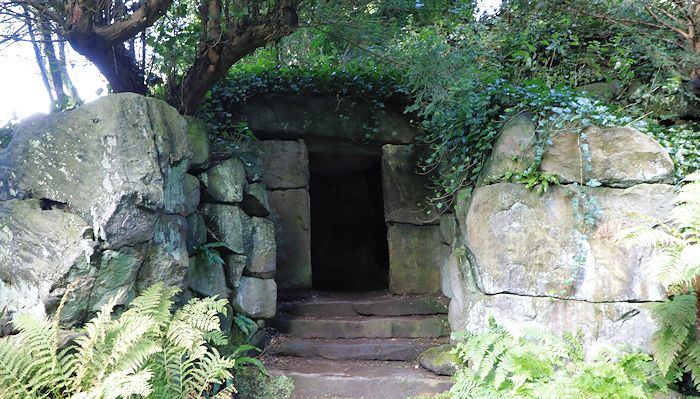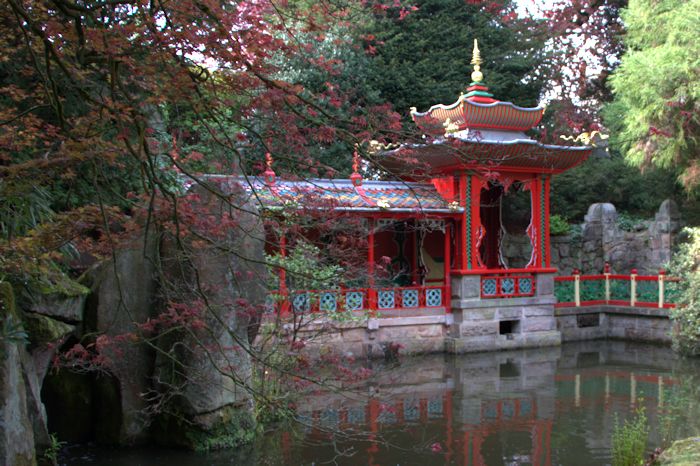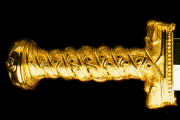Page 2 of 5
Strange Fate

Biddulph Grange in 1867, home to the Meonia group.
The Order of Meonia
The recreated tomb in the Celtic Glen, where witnesses swear to have seen spectral figures.
In the mid-1800s, a secret society, mainly of women, called the Order of Meonia met at Biddulph Grange, a Victorian mansion in Staffordshire, north-central England. Its purpose was to promote female equality in the most extraordinary way – by using mysticism. Remarkably, the group was founded when a seven-year-old girl, Mary Ann Heath, experienced visions after entering a 1500-year-old burial mound on the edge of the Biddulph estate and found an ancient relic, a small stone heart called the Heart of the Rose said to have the power to alter fate. It was believed to have been fashioned by a mythological Greek queen who ruled the land of Meonia in Turkey and was obtained by the British Celts over 2000 years ago. (Meonia is pronounced me-on-eye-a – A as in cat.)
Biddulph Grange
Mary’s family, the Heaths, and the owners of Biddulph Grange, the Batemans - neighbors and wealthy Staffordshire industrialists - began the group by creating a series of ancient replica shrines in the gardens surrounding the house: an Egyptian tomb, a Chinese sanctuary, a Celtic glen, and a Roman temple. Here, they conducted mystical ceremonies hoping to improve matters for women worldwide. When the group was established in 1851, women in almost every country had virtually no rights - to own property, vote, hold positions of power, or run a business. And, even in so-called democratic countries, husbands were legally entitled to beat their wives.


The Chinese Sanctuary, where whispering voices are reported by visitors and staff.
Video - The mysterious garden shrines of Biddulph Grange.








